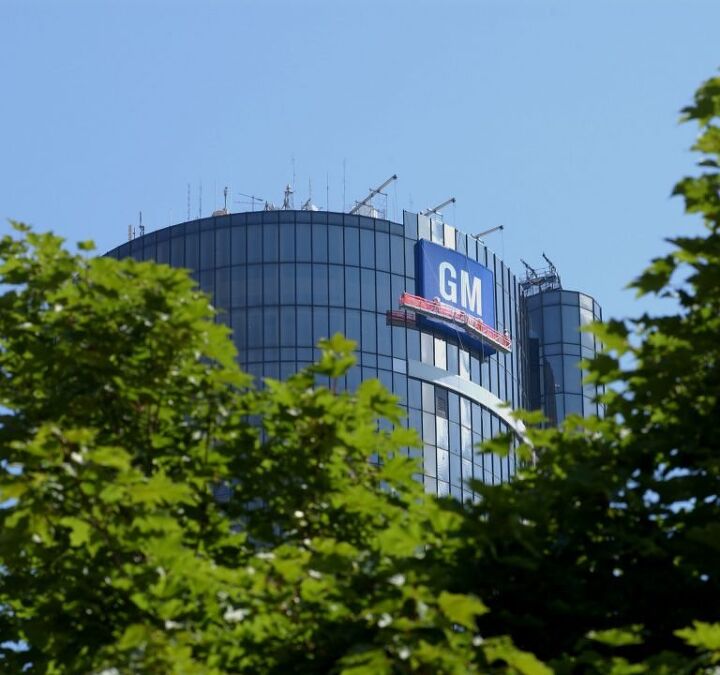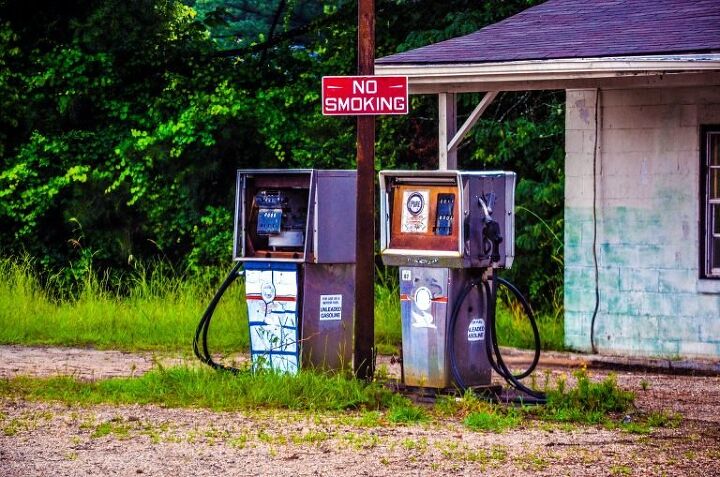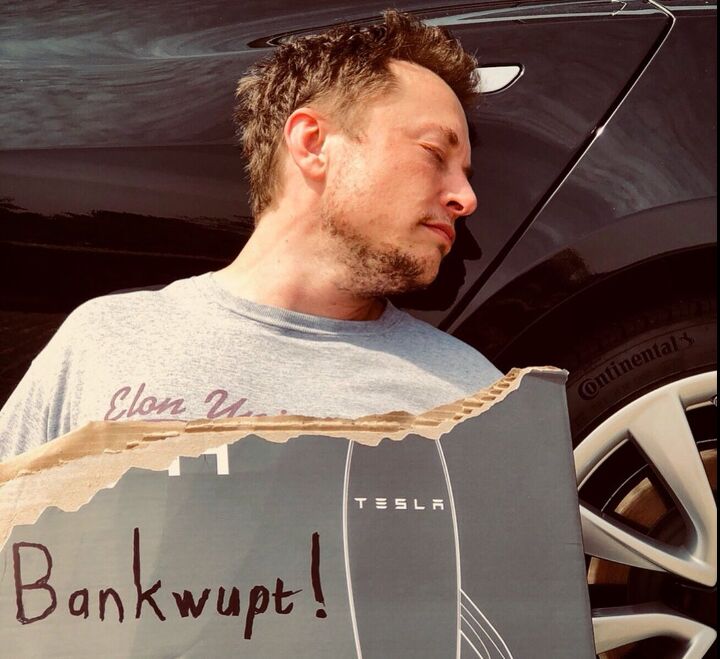#Government
New Lawsuit Alleges Wells Fargo Execs Knew About Auto Insurance Scam for Years
Roughly a year ago, Wells Fargo got itself into hot water over shady business practices relating to widespread auto insurance and mortgage lending abuse. After a lengthy investigation, the Consumer Financial Protection Bureau and the Office of the Comptroller of the Currency eventually suggested Well Fargo pay $1 billion to “resolve” the governmental probes. President Donald Trump then said federal agencies needed to go after the bank hard to set an example. The agencies came back with a consent order saying it was time to pay up.
Despite the insurance issue affecting an estimated 800,000 customers over a four-year period, Wells Fargo seemed able to recover from the scandal and move past it. However, new allegations claim the bank’s leadership was aware customers were probably being overcharged several years before it finally cancelled the program.
Midterm Elections Add Ticking Clock Element to Congress' Self-Driving Car Bill
It looks like Congress’ new self-driving bill might have to wait until a new batch of unmentionables plant their collective rear ends in the seats populating Capitol Hill. Already passed in the House, the SELF DRIVE Act has managed to garner bipartisan support — a true miracle in these troubled times.
However, it’ll have to spread wings if it wants to be signed into law before year’s end. The midterm elections could stymie everything and force Congress to start all over again. A likely prospect, considering the Senate is still going over the bill.
“This entire process has been an incredible feat of bipartisanship,” Greg Rogers, director of government affairs at Securing America’s Future Energy, told Bloomberg. “Attempting to recreate a bill that’s this ambitious and this significant would be like trying to catch lightning in a bottle all over again.”
Fiat Chrysler Puts a Price on Its EcoDiesel Punishment
With Fiat Chrysler’s third-quarter earnings report, released Tuesday, the automaker showed it could improve on the boosted North American profitability seen under late CEO Sergio Marchionne.
The automaker posted an EBIT (earnings before taxes and interest) profit margin of 10.2 percent in the region, helped by heady Jeep and Ram sales and the 2016 decision to cull its unpopular small cars. That’s up from the record 8.4 percent margins seen in the second quarter of last year, and a 51 percent increase from Q3 2018.
Good times? Overall, yes, but net profit took a hit from last year’s 3.0-liter EcoDiesel saga. FCA expects to pay the federal piper for its undeclared auxiliary emissions control devices, with a dollar figure now attached to its penance.
GM: Current Fuel Economy Rules 'Not Technologically Feasible'
General Motors appeared to endorse the Trump administration’s fuel economy rollback, at least to some degree. In a federal filing made public on Monday, the largest U.S. automaker said Obama-era rules that targeted fleetwide fuel efficiency in excess of 50 miles per gallon by 2025 were “not technologically feasible or economically practicable.”
Interesting, considering GM CEO Mary Barra recently called for for the adoption of a national zero-emission vehicle strategy. However, the document also had GM saying it was “troubled” that the current administration appears so keen to abandon federal incentives on electric vehicles after the 2021 model year.
Going Coastal: GM Calls for Nationwide Zero-emission Vehicle Strategy
General Motors CEO Mary Barra took to the USA Today op-ed page Friday to advocate for a national zero-emission vehicle strategy — NZEV, for short. The automaker is calling for the ZEV program already in effect in California and nine other states to become law across the United States, thus making it mandatory for OEMs to field a certain number of electric and plug-in hybrid vehicles, or pay a price.
Were the proposal to became the law of the land, you can only imagine the reaction from Ford’s rival in Auburn Hills.
California Preps Formal Response in Gas War, Calls MPG Rollback 'Unlawful'
California and 18 other states plan to formally vent their grievances over the Trump administration’s proposal to freeze fuel economy standards at 2020 levels on Friday. The Environmental Protection Agency (EPA) and National Highway Traffic Safety Administration (NHTSA) have called for public comments on the matter, with the deadline taking place at the end of this week. Apparently, California wants its voice to be the last one heard.
“They are grossly derelict in not trying to move the dial forward in cleaning the air and the environment,” California’s attorney general Xavier Becerra said in a conference call with reporters on Wednesday. “The situation continues to get worse and requires action now, and not for us to stand pat.”
Fiat Chrysler Wriggles Out From Under Past-due Loan by Outwaiting the Government
It took years, but Fiat Chrysler Automobiles finally unburdened itself from the weight of an unpaid loan by waiting until the government grew tired and gave up. Not that the automaker’s pursuer ever expected to recoup the cash.
It was revealed this week that Canada, which sunk nearly $14 billion into General Motors and Chrysler during the depths of the recession, quietly wrote off a $2.6 billion (CAD) loan made to Chrysler in 2009. It’s not the last bit of money owed to that country’s government by the two automakers, but it is a major outstanding chunk. In its defence, the feds didn’t have a hope in hell of getting the loan repaid, as the company that received it no longer exists.
Right of the Dial: FCC May Open Automotive Safety Radio Frequency for Telecom Use
The Federal Communications Commission has decided to review how the radio spectrum intended for wireless communications should be divided. While a seemingly normal part of its duties, the reassessment could open up a part of the spectrum that was previously reserved for automotive applications. The super-high 5.9 GHz frequency reserved for cars was deemed important because it would help enable low-power connectivity in remote and high-density areas, allowing for vehicles to more reliably transmit information between each other and the infrastructure. This was framed by the interested parties as essential for helping to develop safe, autonomous driving systems but it could likely also work to aid any data-based services they offer in the future.
Meanwhile, cable companies, the telecom industry, and internet service providers (ISPs) don’t think it’s fair that automakers are getting their own slice of bandwidth when they’re not even using it yet. Carmakers have been working on vehicle-to-vehicle (V2V), vehicle-to-infrastructure, and dedicated short-range communication (DSRC) for years without much in the way of consumer applications.
Forget Diesel - Tough Times Now Lie Ahead for the European Plug-in Crowd
The European new car market is in a period of extreme flux. Once-dominant diesels are on the way out thanks to new regulations, looming bans, and cancelled tax incentives, with electrified vehicles poised to take over the high-MPG role.
But not everything’s rosy in the clean, green market on the other side of the Atlantic. A new, more accurate way of measuring fuel economy went into effect last month, and governments — as well as automakers — suddenly realized certain vehicles weren’t as clean as initially thought. Looking to buy a plug-in hybrid in the UK? Say goodbye to that juicy government incentive.
SEC Brushes Off Elon Musk's Tweet, Signs Off on Original Settlement
Tesla CEO Elon Musk’s brilliant idea to call the Securities and Exchange Commission the “Shortseller Enrichment Commission” in a recent tweet did not land the impulsive executive in any additional hot water. The SEC, which decided that removing Musk from the chairman’s position and fining both him and the company $20 million was sufficient punishment for the August 7th “funding secured” tweet, still thinks it’s an appropriate settlement.
The two sides came together in agreement on Thursday, signing off on the settlement and submitting it to a judge.
Getting Out the Corn Vote: Trump Proposes Lifting Summer E15 Gasoline Ban
If you’re like this writer, seeing “may contain up to 10 percent ethanol” at the gas pump leaves you frowning, then reaching for the premium nozzle. It’s not just that 91 octane helps my tiny turbo run better — I don’t like paying through the nose (as I do for all grades) for slightly less energy by volume.
Should President Donald Trump move forward with reported changes to U.S. ethanol laws, you can expect to see more corn alcohol at your local gas station. And I don’t mean Jim Beam.
NTSB Looking Into Limo Regulations in Wake of Deadly Crash
The deadliest U.S. transportation accident in the last decade occurred in upstate New York this weekend, but it didn’t involve a airliner, train, or bus. The vehicle in question was a modified 2001 Ford Excursion. All 18 occupants of the aging limo died after the vehicle failed to stop at an intersection, with two pedestrians struck and killed in the parking lot where the runaway vehicle ultimately came to rest.
In the vehicle was a group of young people, including many couples and relatives, who were headed to a birthday celebration. While limo operators are already subjected to federal oversight, the National Transportation Safety Board plans to probe existing regulations as part of its investigation.
California Prepares Counteroffensive in Great American Gas War, Asks Automakers For Ammo
California is considering a formal, public counter-proposal to the Trump administration’s proposed rollback of the existing fuel economy requirements for passenger vehicles. Gearing up for the launch, the state has requested that automakers present detailed information on their future products and explain why they’re seeking relief from fueling mandates they previously agreed to adhere to.
“They’ve never submitted to us any information that would back up those claims in any detail to help us craft a solution,” Mary Nichols, chair of the California Air Resources Board, (CARB), said in a Thursday interview with Bloomberg.
Feds Abandoning 10 Self-driving Test Sites, Sticking With Voluntary Regulation
With Honda and General Motors teaming up on a self-driving car and GM’s Super Cruise getting the green light from Consumer Reports, it’s already been a busy week for automotive autonomy — and it’s only getting busier.
The U.S. Transportation Department plans to repudiate 10 locations previously outlined by the previous administration to serve as federally recognized proving grounds for self-driving vehicle tech. But don’t think for a second that this means the noose is tightening around the neck of autonomous testing. The Trump administration is preparing a new initiative that will lead to nationwide testing from just about anyone who can cobble together a vehicle with advanced driving aids.
Guilt-tripping Radar Speed Signs Could Soon Read Your Plate
Modern society seems to be divided into two camps — those who say, “If you aren’t doing anything wrong, why would you have a problem with [expanded government power A]?” and those who drop their copy of Reason in horror as each new measure designed to make society “safer” erodes their perceived freedom just a little bit more.
The former group will cheer this news, though the latter camp will surely decry our steeper descent into a Surveillance State. Those annoying roadside signs that flash your current speed might soon record your plate number.






























Recent Comments